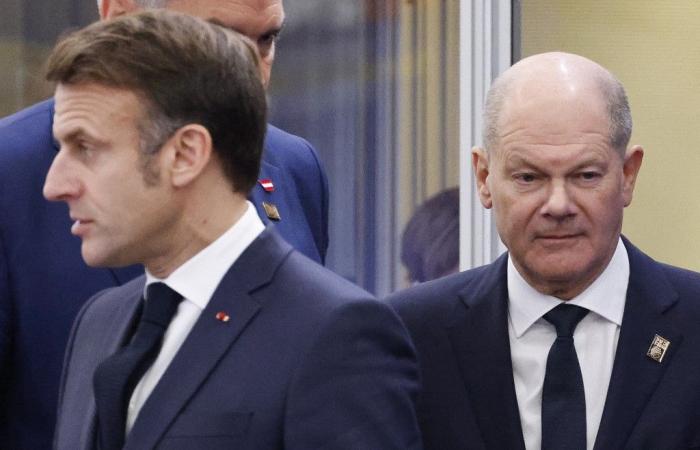
It has become routine in the National Assembly: table a motion of censure, bring together an assembly of discontented people, and hope to cause the government to waver. But since the constitutional reform of 1958, these attempts, however spectacular they may be, have almost systematically failed. Conversely, across the Rhine, the “constructive motion of censure” imposes a simple rule: a government can only be overthrown if a successor is proposed and an absolute majority is gathered behind it. An elegant and rational mechanism. So why is France still clinging to its model, and should it consider taking inspiration from its German neighbor?
In France, the motion of censure is a double-edged sword. Designed to control the executive, it has become a tool of political posturing. Each parliamentary session brings its share of motions, rarely successful, often absurd. But what would happen if, as in Germany, this procedure obliged the oppositions to propose a coherent alternative before overthrowing the government?
The rest after this ad
Across the Rhine, the “constructive motion of censure” ensures that each reversal is followed by an orderly transition. No power vacuum, no institutional chaos. In 1982, this mechanism allowed Helmut Kohl to replace Helmut Schmidt in a few hours, without political trauma. And since then, the model has worked: the motions filed are rare, but they have weight. In France, this reform could have virtuous effects.
The rest after this ad
With a constructive motion, each attempt would be a concrete proposal
Such a reform would empower the oppositions, who could no longer be content with criticizing without proposing. Going beyond the stage of symbolic protest to offer a credible alternative is a political discipline that is sorely lacking in the French political class. This system would put an end to the politics of symbolism: the current motions have become a stage where each party comes to proclaim its frustration, without any real intention of governing. With a constructive motion, each attempt would be a concrete proposal, seriously debated, and not a simple media stunt.
By introducing such a mechanism, France could also strengthen the stability of its executive. In a context of relative majority, dispersed oppositions often find common ground to criticize but struggle to build a common vision. A constructive motion would encourage political forces to work together, build coalitions and negotiate. It would promote more peaceful governance, in a country where political crises are often exacerbated by sterile clashes.
The rest after this ad
The rest after this ad
Finally, this reform could rebalance French institutions. In a regime dominated by an omnipotent president, the constructive motion of censure would restore to Parliament a central role in controlling the executive. This would create a form of shared responsibility and limit the excesses of presidentialism.
Why this reform remains improbable
However, the introduction of a constructive motion of censure in France would face major obstacles. The first is institutional — and constitutional. In Germany, the chancellor is elected by the Bundestag, which places the mechanism in a parliamentary logic. In France, the prime minister is appointed by the president, who retains considerable power over the formation of the government. What would happen if the candidate proposed by a constructive motion did not suit the head of state? This inconsistency could lead to an unprecedented institutional blockage.
French political culture is another obstacle. Where Germany values compromise, France remains marked by a tradition of ideological confrontations. Politics is a power game, not an exercise in collaboration. Asking the French oppositions to agree to propose a common Prime Minister would almost be utopian. The structural division between political blocs, exacerbated by personal ambitions, would make this mechanism difficult to apply.
We must also mention the risk of immobility. By making the overthrow process more complex, the constructive motion could keep governments in place that are weakened but incapable of being censored due to lack of opposition unity. This could worsen the impression of blockage, already omnipresent in French political life.
The constructive censure motion is not just a technical tool, it is a political philosophy. In France, adopting it would not be enough. This reform would only be relevant as part of a broader overhaul of institutions. We should review the voting method to encourage coalitions, reduce the powers of the president to rebalance institutions, and above all, fundamentally reform French political culture.
France would have everything to gain from streamlining its parliamentary procedures, but this would require a cultural and institutional revolution. Today, the French motion of censure remains a spectacular but ineffective tool, more likely to feed newspapers than to transform the country. But is France, too accustomed to its postures and its confrontations, ready to truly change? That's the real question.





